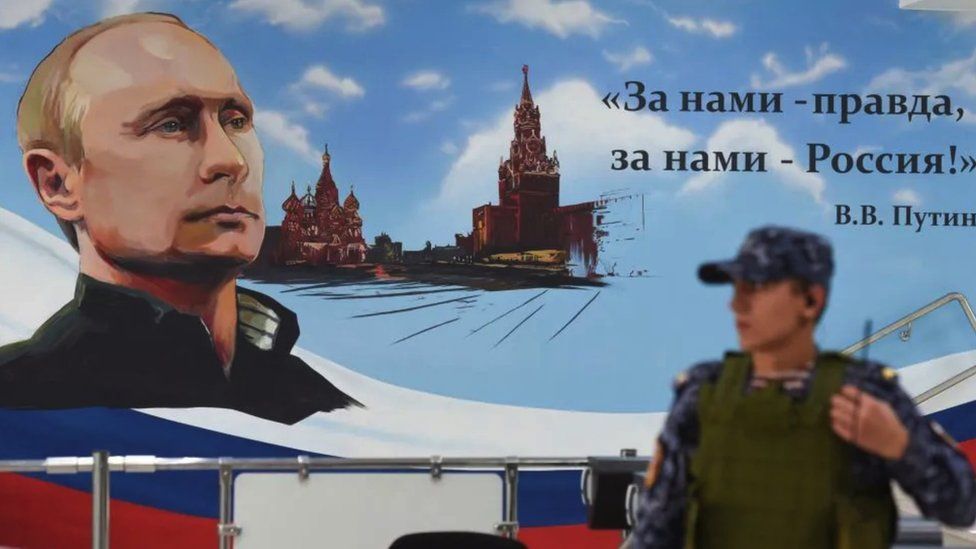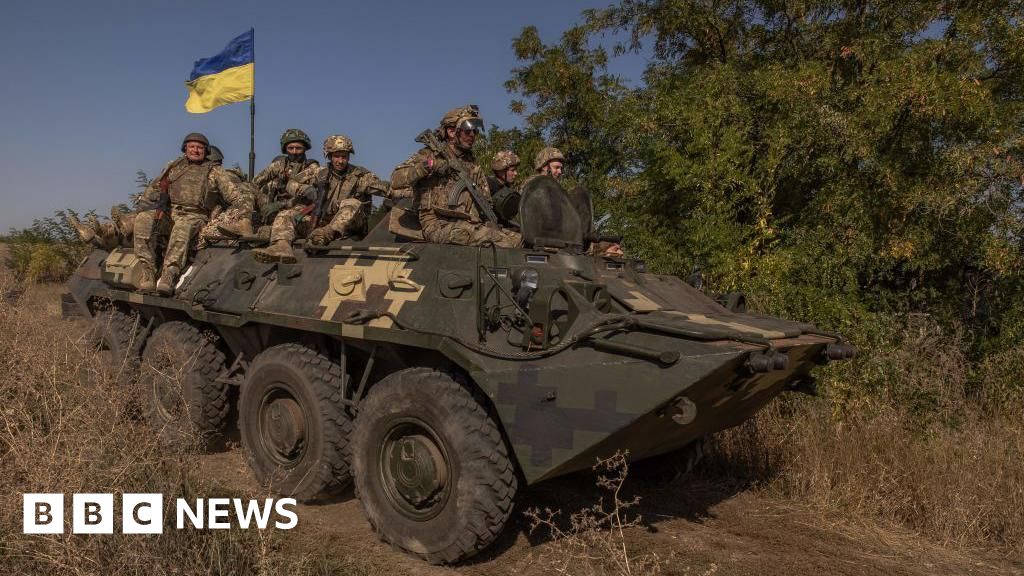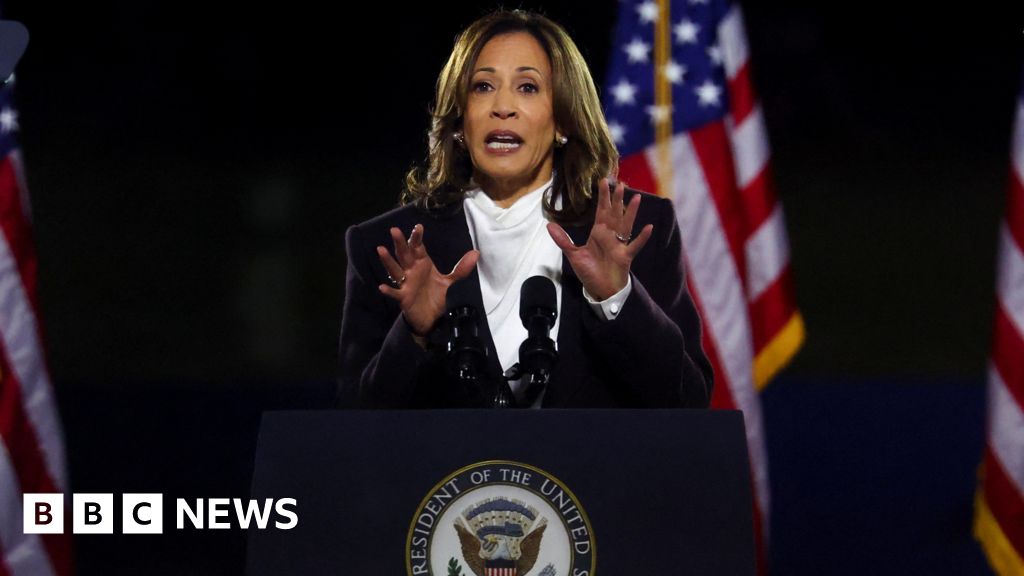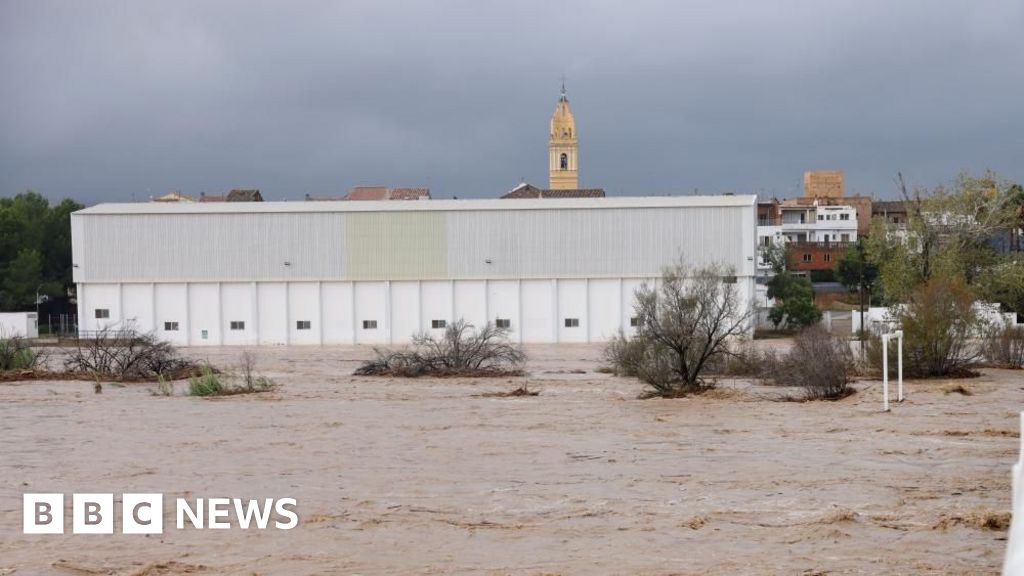ARTICLE AD BOX
 Image source, AFP
Image source, AFP
By Olesya Gerasimenko
BBC Russian
In the early hours of 14 January 2020, blood-curdling screams could be heard at an apartment block in the southern Russian district of Leningradsky.
Shocked and scared, a resident called the police to report what sounded like an attack on a woman.
The screaming continued, alongside loud bangs and cries for help. Six more calls were made to emergency services but still no police officers arrived.
Neighbours, now fearing the worst, decided to take matters into their own hands and broke into the apartment by smashing down the door.
The screaming had stopped. The woman was dead.
Police fail to answer calls
Vera Pekhteleva had been stabbed multiple times, beaten and strangled with an iron cord by her ex-boyfriend in an attack that lasted three-and-a-half hours.
Image source, Family handout
Image caption,Vera Pekhteleva was tortured before being murdered by her ex-boyfriend - and police failed to show up
At the time, police said there were no officers or patrol cars in the area to attend. But later, five officers were found guilty of causing death by negligence and were sentenced to 18 months in jail, suspended for two years.
The court said the sentences, which were seen by many as lenient, were appropriate because officer shortages were a problem for "the whole force".
Russia has one of the world's largest police forces in the world, employing over 900,000 officers to serve a population of 146 million, according to the Russian Ministry of Internal Affairs. It has nearly 630 officers per 100,000 people - more than double the US or the UK.
But in August, Interior Ministry Chief Vladimir Kolokoltsev said the country had a "critical" shortage of police officers, which could affect crime rates.
How can that be the case, given the sheer number of officers?
Poor wages, stress and corruption
Russia's sprawling geography and a lack of back-office support staff are partly to blame. But recent problems stem from a massive drop in police numbers - and many of those leaving are experienced officers.
Many former Russian police officers have told the BBC they are leaving the force and opting for less stressful jobs which are better paid.
"They haven't adjusted the salary at all," a former officer from Rostov, in southwest Russia, said. "After inflation and the new prices, it's not enough." He quit to become a taxi driver.
His friend, who was also a police officer, is now a courier.
Both of them earn twice as much as they did as police officers.
"I reached the rank of major (the equivalent to a sergeant in the UK). But still a person working at a supermarket earned more than me - hardly dangerous work. Only an idiot would join the police now," the former officer from Rostov said.
The BBC has found that overstretched police forces are now refusing to open cases, even after a statement has been provided.
"Everyone gets 10 days to examine statements, whether there are five or 50, so obviously, the quality of work deteriorates," argues one detective from the Siberian region of Russia.
"If there's a string of 10 or so things they must do - call on neighbours, cross-examine witnesses, visit the crime-scene - they'll just do one or two, and write down that it 'wasn't possible' to complete the others.
"Then they refuse to open charges - so there will be no investigation," he says.
Image source, EPA
Image caption,Many former Russian police officers told the BBC they are quitting for less stressful jobs that are better paid
As the number of officers drops, the pressures on those who remain increase.
Former officers have told the BBC this is leading to corruption.
"Officers are beating confessions out of people, inflating arrest quotas, we're seeing this all the time," says a police major from the Russian city of Tomsk.
"It's only going to get worse. There will be falsification of evidence, targeted beatings, there just isn't going to be time to investigate anything properly.
"You've got a lead and you need to chase it? Much simpler to drag the first suspect back to the station and beat him up, so he takes the blame."
Some officers are getting locked up for their actions - further thinning the force.
This happened to Sergei, a former police officer of six years, jailed for beating a drug dealer. Sergei says he felt pressure to arrest the dealer and only hit him when he was about to eat his drugs to conceal the evidence.
He also tells the BBC that police resources were so thin he had to pay for work essentials himself. "I was using my own car, I bought my own paper, cartridges and printer; my own computer, my desk, my chair, my petrol… I laid my own floor tiles [in the office], repaired everything."
A former officer from central Russia says that vacant positions have gone unfilled for a long time. "There's been a shortage for ages. I started in 2015, and only two people have joined our team in the last eight years, while 15 have left."
And according to several BBC sources, including two sergeants and one major, the Interior Ministry carried out a purge of officers who were linked to the opposition politician, Alexei Navalny, who has been held in a remote penal colony since 2021.
Long-serving, experienced officers were fired in this purge. One source said the Moscow Federal Security Service compiled a list of Navalny supporters based on a hacked database of email addresses.
The impact of the war in Ukraine
The number of police officers in Russia was declining before the start of the war in Ukraine.
Initially, the war convinced some officers to stay in the force. Russian police officers are exempt from being called up for military duty, so some officers who were on the verge of resigning when Russia invaded Ukraine told us they kept their jobs to avoid fighting.
"Either you sat tight, or you left and got drafted," explains one officer from Moscow. "I know there were managers who made a list of everyone who'd threatened to quit and passed it straight to the [army] recruiters. Everyone was pretty scared."
But as the war rumbles on, police numbers are dwindling. The force cannot fill existing gaps - let alone recruit the 40,000 extra personnel that the Interior Ministry says is needed in Donetsk and Luhansk, areas of Ukraine that Russia partly occupies.
Putin claimed a win after holding so-called referendums in the Russian-held regions of Ukraine in September 2022. But the polls were denounced as a sham by Ukraine's government and its allies.
Image source, Reuters
Image caption,Russian police officers are not allowed to have an opinion about the war
Russia predicts it will need another 42,000 officers by 2026 if it occupy further territories.
For serving police officers, having an opinion about the war is simply not allowed. They are not even allowed to call it a war.
"Officers must keep their mouths shut," one detective says. "We can't have personal views about the 'special military operation' - or they'll fire us."
The BBC has also been told officers are burning out because of extra paperwork brought on by the war.
Interior Ministry officials from the three Russian cities of Tomsk, Yekaterinburg and Yaroslavl claim they now spend most of their time investigating and revising "endless charges against people discrediting the army".
"People are always looking for an excuse to denounce someone," a former major from Tomsk says.
"There's nobody around... Everyone's gone to check on some grandma who saw a curtain that looked like the Ukrainian flag.
"I see where we're heading," he says. "There's already an emphasis on crimes against the state. Going forward, more cases will fall into this category," he predicts.
"As for real problems affecting ordinary people? Kidnap, robbery, rape, murder… there won't be time to investigate."

 1 year ago
12
1 year ago
12








 English (US)
English (US)